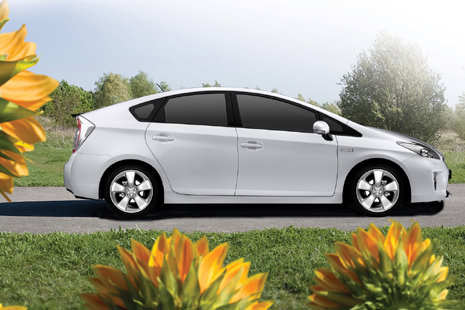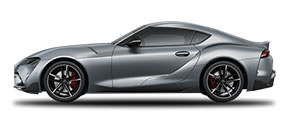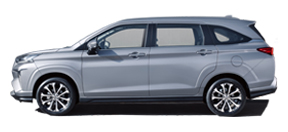
Toyota Chairman Takeshi Uchiyamada likes to tell the story of how his team couldn’t get the first Prius prototype to move for 49 days. According to him, “We had no idea what was wrong, so we worked late every night trying to figure it out. We finally got it to move around Christmas time, but it only went 500 meters!”
That was back in 1995, when hybrid cars were unproven, experimental machines with a very unclear future. Fast-forward twenty years, and Toyota is proud to announce that it has now sold over 8 million hybrid vehicles , with just 10 months between this and the last million-unit milestone.
It can be hard to get a sense of what the number 8 million might mean for the environment and for hybrid owners. For a bit of context, Toyota calculates that as of July 31, its hybrid vehicles have resulted in approximately 58 million fewer tons of CO2 emissions than would have been emitted by gasoline-powered vehicles of similar size and driving performance. Toyota also estimates that its hybrid vehicles have saved approximately 22 million kiloliters of gasoline compared to the amount used by gasoline-powered vehicles of similar sizes.
The message is clear: having found homes in driveways around the world, hybrids have staying power. Since the launch of the Prius in 1997, Toyota has been gradually adding hybrid models throughout its range, from the compact Yaris Hybrid to the recently announced RAV4 Hybrid. As of this month, Toyota sells 30 hybrid passenger car models and one plug-in hybrid model in more than 90 markets.
According to Takayuki Yoshitsugu, Chief Representative, Middle East and North Africa Representative Office, TOYOTA Motor Corporation, “Reaching the 8 million unit mark in terms of global hybrid sales is a significant milestone and reflects Toyota’s success in developing a wide variety of hybrid vehicles in order to offer environmentally friendly vehicles to customers all over the world. Over the years, Toyota engineers have worked relentlessly to further improve the full hybrid powertrain while offering hybrid models in various configurations. At the same time, we have made sure that the cars we offer while reducing emissions are also immensely fun to drive. We sincerely appreciate the support from our customers who have put their faith in our products and made us a global leader in hybrid vehicle sales.”
Hybrid technologies, which encompass all of the component technologies necessary for the development of environment-friendly cars and which facilitate the use of different fuel combinations, are positioned by Toyota as core environmental technologies for the twenty-first century. Using these technologies, Toyota is also working on improving non-hybrid cars. Across the board, Toyota aims to enhance performance, reduce costs, and expand its product lineup―including that of non-hybrid vehicles.







































